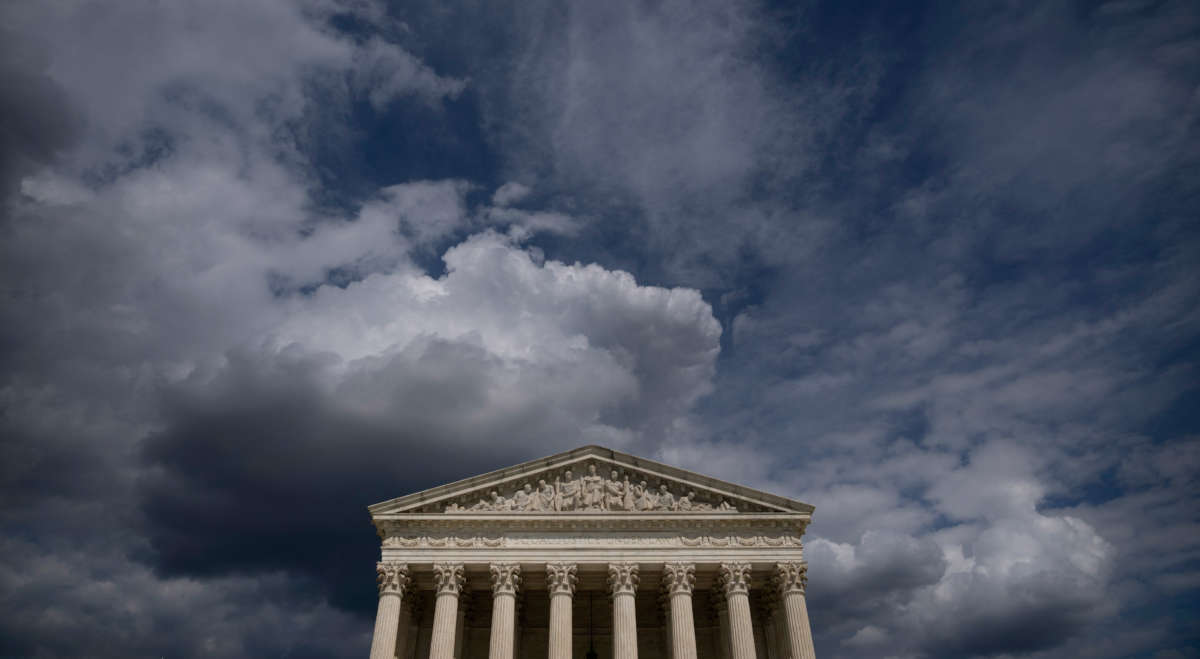The state of Mississippi, in an upcoming legal battle over a restrictive abortion law it passed just a few years ago, is formally asking the United States Supreme Court to overturn its ruling in Roe v. Wade, the 1973 decision that protected the right to access abortion services across the entirety of the country.
The Court is set to hear arguments in the fall over the legality of the state’s 15-week abortion ban, which lower courts have ruled unconstitutional. Mississippi Republican Attorney General Lynn Fitch, in filing a legal brief for the case this week, is urging justices to overrule the nearly-50-year precedent that protects abortion rights.
Roe v. Wade, along with other Supreme Court opinions protecting abortion access, “are unprincipled decisions that have damaged the democratic process, poisoned our national discourse, plagued the law — and, in doing so, harmed this Court,” Fitch’s legal brief reads.
“Mississippi has stunningly asked the Supreme Court to overturn Roe and every other abortion rights decision in the last five decades,” said Nancy Northup, president and CEO of the Center for Reproductive Rights, in a statement responding to the legal filing made on Thursday. “Today’s brief reveals the extreme and regressive strategy, not just of this law, but of the avalanche of abortion bans and restrictions that are being passed across the country. Their goal is for the Supreme Court to take away our right to control our own bodies and our own futures — not just in Mississippi, but everywhere.”
The case, Dobbs v. Jackson Women’s Health Organization, will be a major test of the 6-3 conservative Supreme Court, demonstrating whether the precedents established under Roe will be upheld by newly-minted justices appointed by former President Donald Trump over the past four years. During his presidential campaign in 2016, Trump promised to pick justices that would undo the landmark ruling that has provided generations of people more of a right to bodily autonomy.
The Supreme Court doesn’t necessarily need to rule on Mississippi’s direct challenge to the 1973 decision — it can decide, for instance, to simply rule on the merits of the 15-week abortion ban that prompted the legal brief in the first place. Still, the case is being viewed as a direct challenge to Roe.
While Mississippi’s legal brief complains about the “democratic process” that has been purportedly harmed by Roe, that argument may not carry much weight. Rights protected by the U.S. Constitution, including the right to abortion, are not meant to become subjected to a democratic vote.
Ironically, however, Fitch’s “democratic” argument neglects the fact that most Americans don’t want to see Roe v. Wade overturned. Polling from Gallup in June shows that 58 percent of Americans want the Supreme Court decision to remain the law of the land. Just 32 percent said they wanted it to be undone.
Those polling numbers largely match up with an overall trend that has lasted for several decades with regard to abortion rights. According to data from Gallup polls, support for keeping Roe in place has never dipped below a majority of respondents backing it remaining as law since the 1980s.
Media that fights fascism
Truthout is funded almost entirely by readers — that’s why we can speak truth to power and cut against the mainstream narrative. But independent journalists at Truthout face mounting political repression under Trump.
We rely on your support to survive McCarthyist censorship. Please make a tax-deductible one-time or monthly donation.
